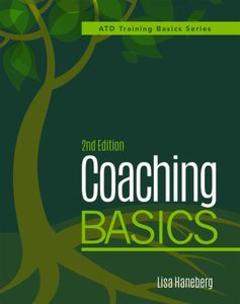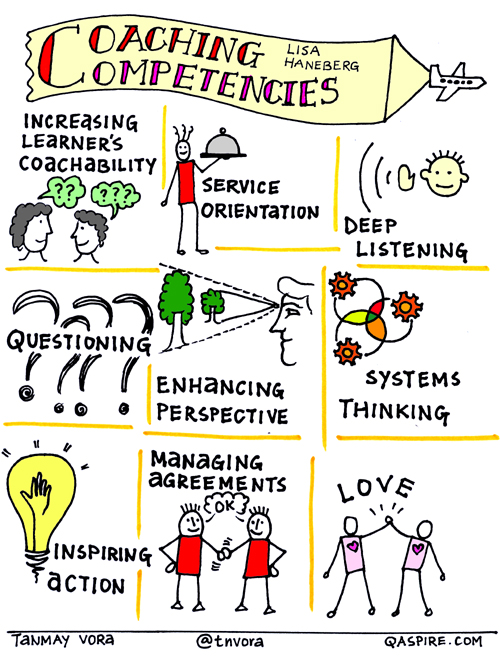Critical Competencies for Effective Coaching (And a Book) by Lisa Haneberg
Tanmay Vora

Great coaching is at the heart of meaningful accomplishments. In an organizational and team context, being able to coach people means helping them overcome their own resistance, get unstuck and move forward in the direction of their goals. Great coaching catalyzes great results.
But too often, we see managers and leaders getting so busy on the treadmill of getting things done that they lose focus on how those results are achieved. A leader’s constant job is to strike a balance between getting things done and developing people. Doing one at the cost of the other can be a great disservice to organization and its people.
I recently read revised edition of my friend Lisa Haneberg’s book “Coaching Basics” published by Association for Talent Development (ATD). It is a wonderful resource for organizational leaders, HR professionals and managers if they want to understand the nuances of how to coach others for greatness. I strongly recommend this book.
I was also fortunate to be able to write a blurb in this book where I say,
Companies often tell their leaders to ‘coach’ people without giving any guidance on the ‘how.’ Lisa Haneberg fills this important gap by offering a very useful handbook that clarifies the foundation of good coaching and offers actionable insights and tools for effective coaching.
– Tanmay Vora, Director, Product Development R&D, Basware
But when I read this book, I was instantly reminded of a wonderful post that Lisa wrote in 2014 where she outlined critical competencies of a great coach.
Here are a couple of excellent quotes from Lisa’s post:
“Coaching is a service and we cannot be successful if the learner perceives that we are helping to satisfy OUR needs or wants.”
“Great coaches are able to help learners adopt a more helpful perspective of the situations about which they are struggling.”
And here is a sketch note summary of coaching competencies that Lisa’s post outlines.

Get the book at: TD.org | Amazon
– – – – –
Also read at QAspire.com:
- The Art of Effective Mentoring – An Interview with Marshall Goldsmith and Chip R. Bell (and the sketchnote summary)
- Coaching Culture: The Art and Science of Success #iHRChat
- Great Teachers are Great Leaders and Vice Versa
- 8 Lessons I Learned on Being an Effective Mentor